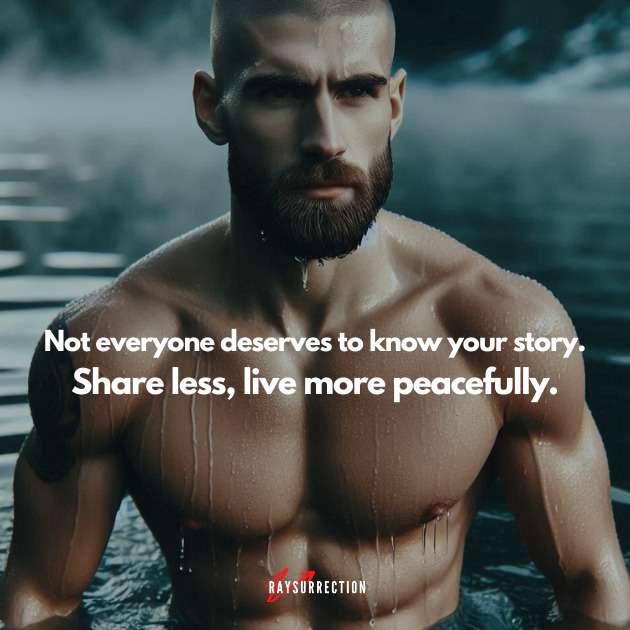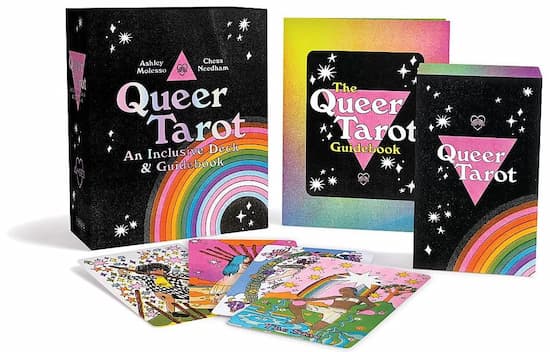You're right if you're thinking, "Another piece about keeping your life private? Been there, read that." But this isn’t about some surface-level online presence techniques you’ve seen a hundred times. You already know the basics—don’t post every detail of your day, be cautious with personal information, and think before you share. Let’s skip the obvious.
Spend the next two minutes reading this, and you’ll learn something that might completely change how you view sharing with others. By the end, you’ll see why holding back isn’t just a smart move - it could shift your entire perspective on relationships and how you protect your energy.
Keep Things to Yourself
Let’s be honest for a second. Oversharing feels good sometimes, doesn’t it? You’re putting your thoughts and feelings out there, hoping someone will connect with them. But here’s the reality: most people don’t care, and some are waiting for a reason to doubt or criticize you. Sharing too much with the wrong people opens the door for disappointment, judgment, and, honestly, unnecessary stress.
There’s no need to broadcast your every thought, plan, or feeling to anyone willing to listen. By keeping things to yourself, you stay in control of your life and avoid giving others power over your emotions. Not everyone deserves to know what’s going on in your mind.
People Don’t Really Care
Here’s a hard truth: most people are too caught up in their own world to genuinely care about yours. They might listen, nod, and even ask follow-up questions, but their interest is usually surface-level.
You could spend time explaining your dreams, struggles, whatever, and they’ll forget half of what you said by the next day. You’ve probably seen this happen. You share something personal, and they move on so quickly it’s like the conversation never happened. It’s not because they’re bad people - they just have their own lives to deal with.
Even when someone seems to be interested in you, it doesn’t always mean they’ll carry your story with them. After all the trying, you feel dismissed at times, and it is frustrating indeed. Like your words didn’t matter. But when you keep those thoughts to yourself, you avoid the sting of realizing how little impact your sharing had on them.
Some People Want to See You Fail
Not everyone around you has your best interests in mind. This can be hard to accept, especially when the people who secretly root against you might be the ones closest to you.
There are those who listen not to support you, but to store information they can use later. Maybe it’s subtle - like a fake laugh when you talk about your plans—or more direct, like telling you, "That doesn’t sound like a good idea." Either way, their energy can drain your enthusiasm and make you question yourself.
There’s also the quiet satisfaction some people get from seeing you struggle. They won’t admit it, but they feel better when you’re down because it makes them feel like they’re ahead. Sharing your challenges or fears with them only fuels this hidden dynamic. Keeping your cards close protects you from becoming their entertainment or target.
People Lose Interest Faster Than You Think
You’ve probably noticed this: you tell someone something that feels huge to you, and their attention fades almost immediately. It could be something you worked on for months, a personal struggle, or even just a fun story. After a quick "Oh, cool," they’re off to the next topic.
When someone forgets what you shared, it stings. You put effort into opening up, only to realize they didn’t value it as much as you hoped. And when you revisit the topic later, they might not even remember the first conversation.
This isn’t always intentional. People are wired to focus on their own stuff, and your life is just a small part of their day. But when you recognize this pattern, it becomes easier to decide when and what to share. Not everything needs to leave your head—it’s sometimes better kept as your own treasure.
Control Your Heart, Or Someone Else Will
When you share too much, you’re essentially giving people the power to shape how you feel. Their reactions - good, bad, or indifferent - can affect your confidence, mood, or decisions.
Imagine being thrilled about something new in your life and telling someone, only to get a lukewarm response. Their lack of enthusiasm leaves you second-guessing something that initially brought you joy. Or maybe you’re in a tough spot and confide in someone who brushes you off. Instead of feeling lighter, you’re left questioning if your feelings were valid in the first place.
Keeping things private gives you room to process them on your own. You can celebrate your wins and work through your struggles without the weight of someone else’s reaction pulling you in different directions.
Sharing Less Feels Lighter
There’s something freeing about sharing less. You don’t have to manage reactions, defend your choices, or explain your feelings. Instead, you create a kind of quiet space where you get to decide how you want to feel and act.
Fewer conversations about your life mean less energy spent rehashing the same issues. It also means less emotional whiplash from people’s opinions. You’re free to exist without anyone else's input clouding your thoughts.
- Keep personal plans under wraps until they’re solid. This lets you figure things out without external pressure or premature judgments.
- Stick to topics you feel comfortable discussing. Not every part of your life needs to be a conversation starter.
- Limit who gets access to your inner world. Choose people who’ve earned your trust instead of anyone who asks.
Protect Your Peace
At the end of the day, sharing less protects your emotional peace. When you’re not constantly opening up, you avoid unnecessary stress and create space to focus on what really matters to you.
Venting about frustrations or struggles might feel like a release, but it also invites opinions or comments you didn’t ask for. Instead, try writing things down or reflecting quietly. You’ll often find clarity without involving anyone else.
Wins feel different when celebrated privately. There’s something satisfying about enjoying success on your own terms, without the need for applause or validation. It makes the experience feel more personal and less performative.
Privacy Gives You Control
When fewer people know what’s going on with you, there’s less chance for gossip, judgment, or unwanted advice. You decide what to share, when to share it, and with whom.
- If someone asks a personal question, keep your answers vague. "I’m working on a few things" or "Things are going well" are easy ways to stay polite without giving too much away.
- Change the topic when conversations get too invasive. Redirecting to neutral ground keeps things comfortable without feeling awkward.
- Post less about your personal life online. Social media thrives on oversharing, but you don’t have to play along. Stick to lighthearted updates or skip posting entirely.
The more control you have over your own story, the more peace you’ll find in everyday interactions.
Not Everyone Deserves To Know Your Story
People aren’t deeply invested in your life, and some are quietly hoping to see you stumble. By keeping things to yourself, you protect your energy, maintain control, and avoid the emotional toll of dealing with outside opinions.
Life gets lighter when you stop letting others influence how you feel or what you do. Privacy isn’t about shutting people out—it’s about keeping what matters most close to your heart, where it belongs.





